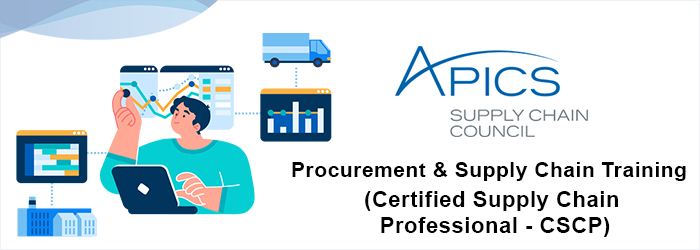

Understanding and implementing the most recent best practices and trends is critical to
global supply chain management success. The APICS Certified Supply Chain Professional
(CSCP) program is the first and only supply chain certification program that covers the
whole global supply chain from beginning to end. APICS CSCP certification holders are
prepared to handle global supply chain activities including suppliers, facilities,
distributors, and customers situated all over the world.
You will broaden your supply chain knowledge and prepare for the APICS Certified Supply
Chain Professional (CSCP) certification exam by attending this course.
The Certified Supply Chain Professional (CSCP) certification is offered by APICS (Association for Supply Chain Management) and is a globally recognized credential for supply chain professionals. CSCP certification training provides individuals with the knowledge and skills necessary to excel in the field of supply chain management. Here are some highlights of CSCP certification training:
The eligibility criteria for the Certified Supply Chain Professional (CSCP) certification, offered by APICS (Association for Supply Chain Management), typically included: